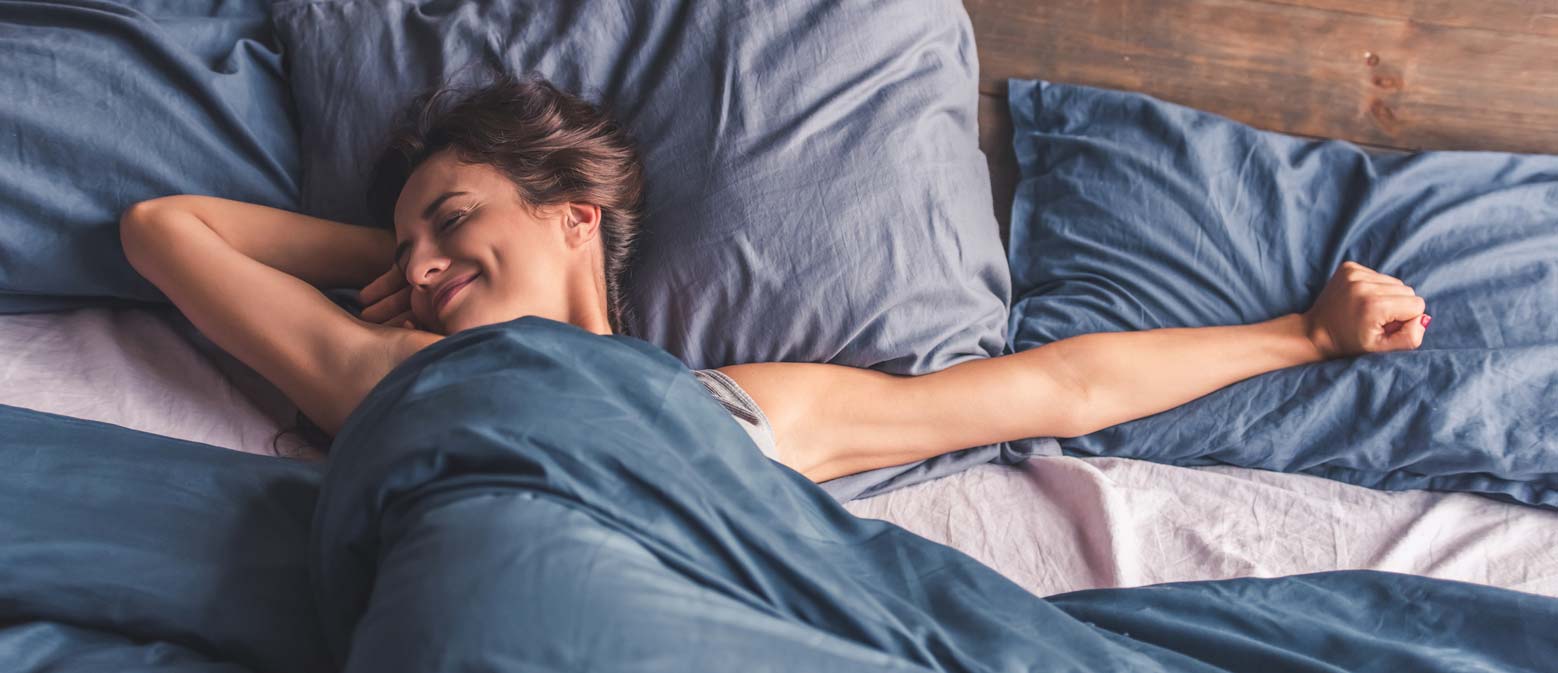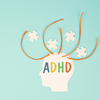What is Sleep Hygiene? Here’s How to Use it to Get Better Sleep

Learn what sleep hygiene is and how this nightly routine can help you get better sleep.
Plus, the signs of good and poor sleep hygiene and tips to get your best rest.
Good sleep can sometimes be hard to come by, leaving you feeling tired and groggy the next day. Creating the right habits for a great night’s sleep can go a long way to helping you feel rested and ready for anything. If you’re looking to get better sleep, there are many strategies, such as sleep hygiene, that can help you prepare for bed. Lets dive into a few easy steps you can take to make this journey an easy one.
First off, what is sleep hygiene?
Sleep hygiene is a routine you can implement before bed to help you get a good night’s sleep. Although it’s called sleep hygiene, it’s not about how clean your bedroom is—though that can help. Instead, it’s about having consistent and positive habits that set the tone for restful nights.Sleep hygiene can help your body wind down for the night. It includes your bedtime routine, like reading a book, but also what you do during the day—like how much coffee you drink, when (and what) you eat, or when you exercise. Also, we have heard the word Anxiety a lot lately, it also can play a key role in you not getting a good night’s sleep. Keeping anxiety low throughout the day can be an important part of your sleep hygiene.
Good sleep hygiene means you’re doing everything you can to create the perfect space and mindset for good quality, deep sleep. Your bedroom environment is important—it helps to keep it cool, quiet, and comfortable.
In short, sleep hygiene is a combination of habits that can lead to you waking up refreshed in the morning and ready to tackle the day. The best part is that anyone can improve their sleep hygiene—it’s all about finding what works for you and sticking to it.
The importance of good sleep hygiene.
Sleeping well is just as important as eating healthy or staying active. Good sleep hygiene can help you fall asleep faster and stay asleep longer, so when morning comes you feel well-rested and ready for a new day.
When you sleep well, your body gets a chance to repair itself, your brain can sort through what you learned that day, and your emotions can take a break and reset.
Being well-rested can make your mind sharper for solving problems at work, keep your mood steady, and even help your body fight off colds and infections.
Giving yourself a heads-up that it’s bedtime through a routine means your body can start getting ready for a night of great sleep.
3 signs of poor sleep hygiene
Your body will often give you signals if you’re not getting the rest you need. Think of them as little alarms, letting you know it’s time to check your sleep habits and make some changes. By recognizing these signs, you can start to make the tweaks that can help you get the quality sleep you need.
- Trouble falling asleep: If you’re lying in bed, tossing and turning before you fall asleep, it could indicate poor sleep hygiene. Your mind should be able to calm down at bedtime, but if it’s still mulling over the day’s events, it might be time to look at your pre-bedtime habits.
- Waking up a lot at night: Waking up often can fracture your sleep cycle, leading to less restorative sleep. If you find yourself waking up throughout the night, again it could be a hint that something in your sleep environment, routine, or even your health might need attention.
- Feeling sleepy during the day: We all have a slow day now and then, but if you’re regularly feeling like you could doze off during a meeting or while watching your favorite show, it could be a sign that you’re not getting the quality sleep you need at night.
How getting a good night’s sleep affects your health and wellbeing.
Getting a good night’s sleep isn’t just about preventing those yawns and the need for coffee. It can bring a huge boost to your health and happiness. When you get enough sleep, your body gets to work repairing muscles, sorting memories, and even making sure your emotions are in check for the next day.
Sleeping well can keep your brain sharp for tasks that need attention to detail, and it can help keep your mood bright throughout the day. Sleep can also play a big role in keeping you healthy—it’s like your body’s shield against getting sick.
You can create positive sleep hygiene by setting up the right habits and environment. When your body knows it’s time to wind down because you’ve got a regular schedule and a comfy, quiet sleep space, it can handle all its nightly tasks better. Meaning that when you wake up, you feel ready to tackle the day.
Sleep hygiene routine for your best rest.
Building a sleep hygiene routine doesn’t have to be hard. To get a good night’s sleep, create a regular routine and develop it into a habit.
Dim the lights: Bright lights tell your brain it’s still day, so lower the lights to give your brain the cue that it’s nighttime.
Turn off electronics: Screens keep your mind buzzing. Power down at least an hour before bed to help your brain settle.
Find what relaxes you: Whether it’s listening to soft music, taking a warm bath or hot shower, or doing some gentle stretches, do something that eases your mind every night.
Stick to a sleep schedule: Go to bed and wake up at the same time every day, even on weekends. Your body will thrive on routine.
Keep your bedtime routine consistent: Do the same relaxing things each night so your body knows sleep is coming soon.
CBD can also be a great addition to help with your Nightly Sleep Hygiene Routine.
First off let’s talk about how CBD interacts with your ECS (Endocannabinoid System). Understanding the ECS is essential to understanding the effect CBD may have on sleep. “The endocannabinoid system is a complex neurochemical network in the body that regulates various bodily functions, including emotions, pain and sleep,” says Chantel Strachan, M.D., a board-certified internal medicine physician and headache specialist.
Another well-known physician in the cannabis world is Dr. Daniel Whitelocke, M.D., he indicates that “The hypothalamus, a peanut-sized structure buried deep in the brain, is enriched with cannabinoid receptors and governs the circadian rhythm of our sleep-wake cycle,” Circadian rhythms are 24-hour cycles that, among other functions, help our bodies fall asleep at night and wake up in the morning, and research suggests the ECS factors into that cycle.
Dr, Whitelocke goes on to say that CBD is a safe alternative to prescription sleep medications. “Especially when you consider the relatively low toxicity of CBD products, “using CBD for sleep is a wise alternative for almost anybody seeking to improve the quality and quantity of restorative rest.”
Anxiety and CBD
While not a sleep disorder itself, anxiety can contribute to poor quality sleep, insufficient sleep, and sleep disorders. Because CBD calms the nervous system, early research indicates that CBD can be used to treat anxiety-related disorders. One study showed that nearly 80% of participants who used CBD to treat their anxiety reported lower anxiety levels within a month. Sleep initially improved in more than 65% percent of participants, followed by fluctuating results.
Insomnia and CBD
People who suffer from insomnia have trouble falling asleep or staying asleep at night. This disorder affects daytime wakefulness, ability to concentrate, and mood. Because of their history of poor sleep, people with insomnia may suffer from anxiety about getting inadequate sleep, which can then increase sleeplessness at night.
Given the potential positive outcomes of CBD treating anxiety, it is speculated that CBD may also help reduce the anxiety associated with insomnia.
REM Sleep Behavior Disorder and CBD
In REM sleep behavior disorder, patients verbalize and make aggressive movements\during their rapid eye movement (REM) stage of sleep. The disorder is most common in older patients with neurodegenerative diseases, such as Alzheimer’s disease and Parkinson’s disease.
In a limited study of four patients with Parkinson’s disease, CBD helped manage the REM sleep behavior disorder symptoms. Before taking CBD, the patients experienced disorder symptoms 2–7 times per week. After taking CBD, the symptoms occurred 0–1 times in a week. Further studies are necessary, but these initial results suggest CBD as a possible treatment for REM sleep behavior disorder.
Incorporating CBD into your Sleep Hygiene Routine is a safe an easy addition. Cannafyl realizes how important sleep is for the human body. Every body wants it and needs it!
These statements have not been evaluated by the Food and Drug Administration.
-
Posted in
cbd bath bombs, cbd for relaxation, cbd for sleep, cbd gummies, cbd oil, cbd soap, cbd topicals








